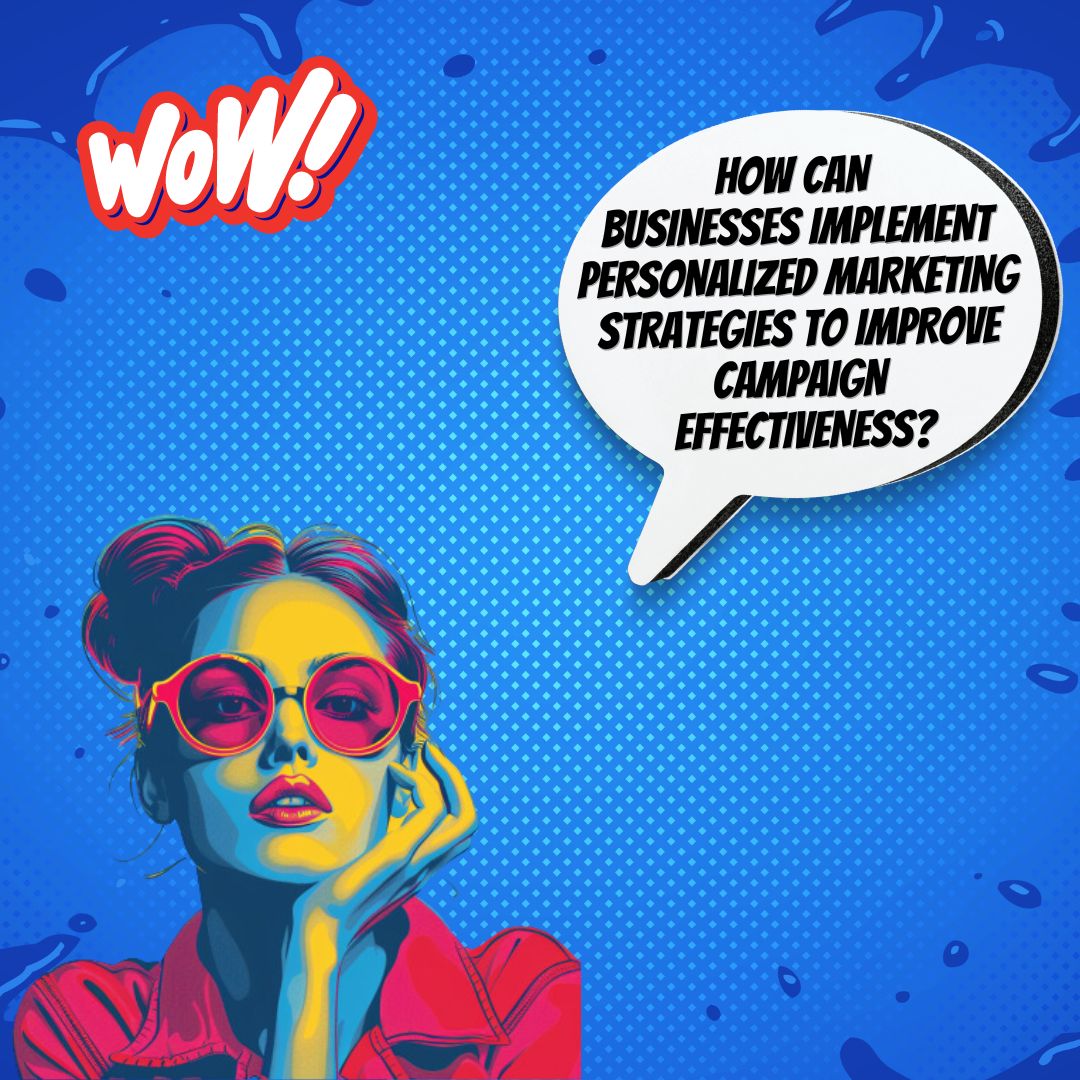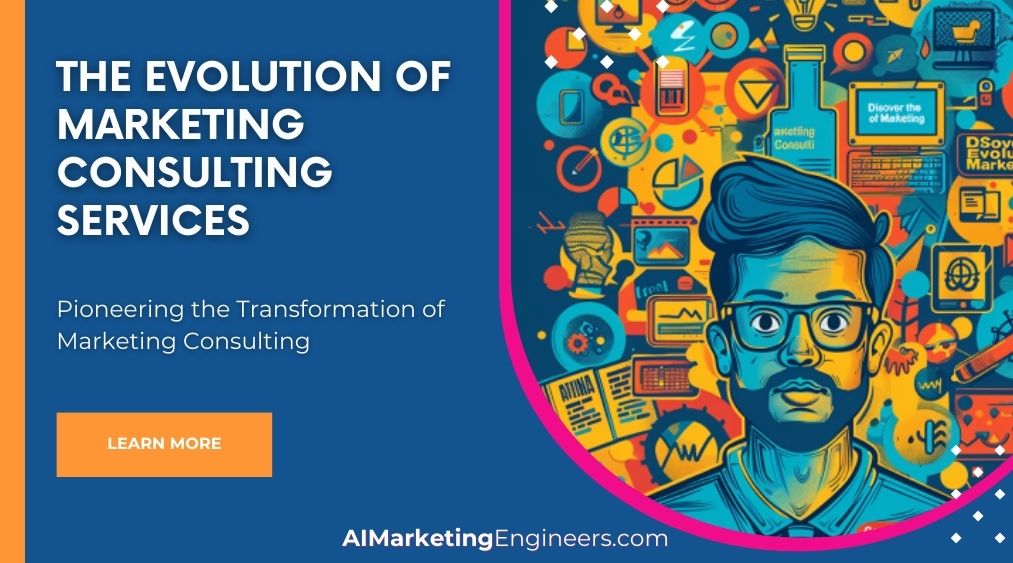Key Takeaways
✅ Ancient Origins and Adaptation: Consulting has ancient origins, from advisors like Marco Polo to modern practices shaped by industrial revolutions, evolving to fit business needs. To stay relevant, modern marketers must use adaptive strategies rooted in historical excellence.
✅ Digital Marketing Evolution: The digital landscape has shifted with the rise of social media, influencer marketing, and SEO. Staying on top of trends like voice search and interactive content can propel your brand forward, ensuring your consulting services provide cutting-edge strategies.
✅ Data-Driven Growth Marketing: Successful marketing today hinges on data-driven approaches. Growth marketing blends brand and performance tactics, requiring ongoing testing and optimization. Integrate these methods to sustain long-term growth and client satisfaction.
 Introduction
Introduction
How has marketing consulting evolved from guiding ancient rulers to navigating the complexities of the digital realm? The evolution of marketing consulting services highlights a rich history and rapidly changing present. As digital advancements reshape industries, staying updated on modern trends and data-driven strategies becomes critical. Dive into innovative perspectives and groundbreaking solutions that maximize ROI and revenue, promising to transform your marketing approach. Here, you'll discover actionable insights from the past to the present, offering a roadmap for the future success of your consulting ventures.
Top Statistics
| Statistic | Insight |
|---|---|
| Global Marketing Consulting Services Market Size: The global marketing consulting services market is expected to grow from USD 22.32 billion in 2021 to USD 32.79 billion by 2031, exhibiting a CAGR of 3.88%. | This projected growth highlights the increasing demand for expert advice in navigating the complexities of modern markets. |
| US Marketing Consultants Market Size: The market size of marketing consultants in the US is projected to reach USD 87.7 billion in 2024, with a CAGR of 4.0% from 2024 to 2029. | Such growth indicates a robust demand for consulting services within the US, driven by the need for specialized expertise. |
| Marketing Consulting Market Growth: The global marketing consulting market is forecast to grow by USD 41.56 billion from 2023 to 2027 at a CAGR of 5%. | Investing in marketing consultation is becoming increasingly essential as businesses strive to stay competitive. |
| Regional Contribution: North America is estimated to contribute 36% to the growth of the marketing consulting market by 2027. | This significant regional contribution underscores North America's pivotal role in the global consulting landscape. |
| Marketing Automation: The adoption of marketing automation software is expected to propel growth in the global marketing consulting market. | Automation tools help analyze company-wide marketing data, providing invaluable statistical insights for informed investment decisions. |
Historical Context of Marketing Consulting Services
The origins of consulting can be traced to ancient times, where advisors played a crucial role in guiding leaders. Fast forward to the second industrial revolution in Europe, modern management consulting emerged as industries needed more sophisticated expertise in organizational processes and machinery. This era set the foundation for today’s consulting landscape, where marketing consultants are navigating increasingly complex environments.
Key Trends and Advancements
Today's marketing consultancy is deeply intertwined with digital marketing advancements like social media, mobile devices, and search engines. High growth firms are harnessing automation tools and technology to scale operations efficiently. What drives their growth? Automation maturity, strong talent acquisition strategies, and effective marketing approaches, which together support impressive rates of expansion without sacrificing profitability.
Impact of Technology
With technology at the forefront, consultants now enjoy real-time reporting capabilities that are crucial for data-driven decision-making. Agencies are adapting their business models, integrating digital strategies to enhance productivity and efficiency. The adoption of cloud computing, social networks, and mobile devices is not just improving internal operations but also boosting collaboration, making these tech-savvy agencies well-prepared to tackle modern challenges.

Building a Successful Marketing Consulting Firm
To remain competitive, agencies must continuously evaluate and adapt to shifting consumer behaviors. They need to consider efficient pricing models and develop diversified skill sets among their team members. Integrated services, scalable infrastructure, and robust marketing and sales strategies are pivotal. Prioritizing client relationships and emphasizing measurable results are equally important. Innovation isn't a luxury but a necessity for staying relevant.
Unparalleled Opportunities
The landscape of marketing consulting is ripe with opportunities for emerging agencies and consultants. By embracing digital advancements and leveraging technology, firms can not only meet client needs more effectively but also position themselves for sustained success in today’s ever-changing business environment.
In summary, understanding these elements—historical roots, current trends, and technological impacts—offers a comprehensive view of the marketing consultancy evolution. Which aspects of your approach need refinement? Are you leveraging the right technologies? These are critical questions for any firm aiming to thrive in this dynamic field.

AI Marketing Engineers Recommendation
Recommendation 1: Utilize AI-Powered Analytics for Tailored Solutions: Harness AI-Powered Analytics to deliver personalized marketing solutions. A study by McKinsey found that businesses using data-driven strategies experience five to eight times higher ROI than those that don’t. AI can analyze large datasets to uncover patterns and insights that human consultants might miss, allowing for highly customized marketing strategies. This helps in targeting the right audience with precision, thereby increasing conversion rates.
Recommendation 2: Embrace Omnichannel Marketing Consulting: Adopt an Omnichannel Marketing Strategy to ensure consistent customer experience across all platforms. Current trends show that 73% of consumers use multiple channels in their shopping journey, according to a Harvard Business Review report. Marketing consultants must advise clients on integrating their efforts across online and offline channels. This approach not only reinforces brand consistency but also meets customers where they are, enhancing engagement and retention.
Recommendation 3: Leverage Marketing Automation Tools: Implement Marketing Automation Tools like HubSpot or Marketo to streamline marketing efforts. According to Statista, companies utilizing marketing automation can see a 451% increase in qualified leads. These tools assist in managing campaigns, personalizing customer outreach, and analyzing performance metrics. Marketing consultants should guide their clients in deploying these tools to maximize efficiency, save time, and improve overall marketing performance.
Relevant Links
- Unlock the Power of AI for Marketing Success
- Set Impactful Campaign Goals & Objectives
- Enhance Market Penetration with Strategic Campaigns
- Drive Success with User Behavior Insights
Conclusion
The evolution of marketing consulting services presents unparalleled opportunities for emerging agencies and consultants to transform and thrive. As the landscape shifts towards digital advancements and technology, staying competitive requires firms to be both innovative and adaptable. Historical context highlights that consulting has always evolved to meet the needs of its time, from ancient advisors to modern-day digital experts.
Today's high-growth firms demonstrate the importance of leveraging technology and automation to achieve their goals without sacrificing profitability. This evolution enables data-driven decision-making, real-time reporting, and efficient operations through tools like cloud computing and social networks.
Agencies that focus on client needs, talent retention, and effective strategies while continually adapting to trends will position themselves for success. In essence, the ability to innovate and stay ahead of consumer behavior changes will define future leaders in marketing consulting. It's a dynamic time, and those willing to embrace change will set the pace for the industry.

FAQs
Question 1: What motivated you to pursue a career in marketing consultancy?
Answer: I've always been intrigued by the power of persuasion and creativity in influencing consumer behavior. Marketing consultancy offers me a platform to utilize these skills to help businesses grow.
Question 2: Describe a marketing campaign that inspired you and explain why.
Answer: One campaign that inspired me was Nike's "Just Do It" campaign. It's not just about selling shoes; it's about inspiring people to push their limits and embrace their potential. That kind of impact resonates deeply with me.
Question 3: How do you stay updated with the latest marketing trends and technologies?
Answer: I make it a point to regularly read industry blogs, attend webinars, and participate in relevant workshops. Additionally, I'm always experimenting with new tools and platforms to stay ahead of the curve.
Question 4: What are your primary business goals and objectives?
Answer: Understanding your client's overarching business objectives is crucial. Knowing their short-term and long-term goals will help you align your marketing strategies to drive meaningful outcomes.
Question 5: Who is your target audience, and what are their preferences?
Answer: Defining the target audience enables you to tailor marketing campaigns and messages that resonate with the right people, increasing the chances of conversion.
Question 6: Can you walk us through your approach to creating a marketing strategy from scratch?
Answer: I begin by conducting thorough market research to understand the target audience and competitors. Then, I define clear objectives and develop a comprehensive strategy that aligns with the client's goals and budget.
Question 7: How do you handle criticism or feedback on your work?
Answer: I view criticism as an opportunity for growth. I'm always open to feedback and use it to refine my strategies and improve my performance.
Question 8: Describe a situation where you had to work under pressure and how you managed it.
Answer: During my internship, we had a tight deadline for a client presentation. I prioritized tasks, delegated responsibilities effectively, and maintained open communication with team members to ensure we met the deadline without compromising quality.
Question 9: What do you think are the essential skills for a successful marketing consultant?
Answer: I'm passionate about leveraging technology to enhance marketing effectiveness and efficiency. Whether it's using AI for predictive analytics, chatbots for customer service, or personalized recommendations, I believe in adopting innovative solutions that drive results and enhance the customer experience.
Question 10: Discuss a time when you successfully reactivated dormant customers or lapsed leads and the strategies you employed.
Answer: I implemented a targeted email re-engagement campaign aimed at reconnecting with dormant customers and incentivizing them to make a repeat purchase. By offering exclusive discounts and personalized recommendations based on their past behavior, we were able to win back a significant portion of lapsed customers.

Academic References
- Nambisan, S., Lyytinen, K., Majchrzak, A., & Song, M. (2017). Digital Innovation Management: Reinventing Innovation Management Research in a Digital World. MIS Quarterly, 41(1), 223-238. This study highlights the importance of digital innovation in marketing, stressing the need for innovation management research to adapt to the digital era.
- Tantalo, C., & Priem, R. L. (2016). Value Creation Through Stakeholder Synergy. Strategic Management Journal, 37(2), 314-329. The authors explore how stakeholder synergy can lead to value creation, underscoring the role of marketing in fostering these relationships.
- Kannan, P. K., & Li, H. (2017). Digital Marketing: A Framework, Review and Research Agenda. International Journal of Research in Marketing, 34(1), 22-45. The study provides a framework for digital marketing and outlines a research agenda, spotlighting the evolution of marketing concepts in the digital age.
- Jones, D. G. B. (1986). The Development of Marketing Knowledge in the Production Era. Journal of Marketing History, 4(1), 1-28. This paper challenges the concept of the Production Era, examining the development of marketing concepts in Britain, Germany, and the United States.
- Winer, R. S., & Neslin, S. (2014). The History of Academic Research in Marketing. Journal of Marketing, 78(1), 77-98. This study traces the history of academic marketing research from 1960 to the present, demonstrating how the field has responded to technological advancements.
- Crittenden, V. L., & Peterson, R. A. (2019). Marketing Education: Time for Disruption. Journal of Marketing Education, 41(2), 174-188. The authors discuss the necessity for marketing education to adapt to the digital disruption, pointing to the transdisciplinary future of marketing education.
- Grewal, D., Hulland, J., Kopalle, P. K., & Karahanna, E. (2020). The Future of Technology and Marketing: A Multidisciplinary Perspective. Journal of the Academy of Marketing Science, 48, 1-8. This paper provides a multidisciplinary view on the future of technology and marketing, emphasizing the need for marketing to adapt to emerging technological trends.








